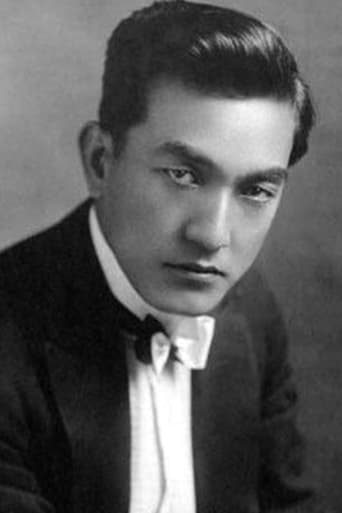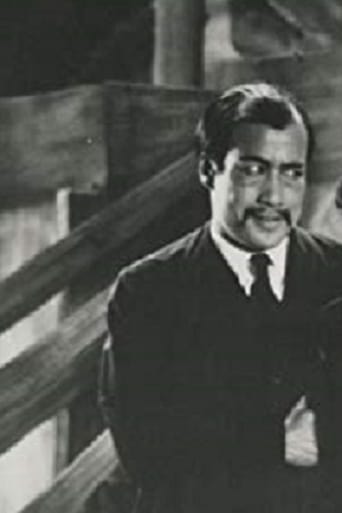Wordiezett
So much average
VividSimon
Simply Perfect
XoWizIama
Excellent adaptation.
AutCuddly
Great movie! If you want to be entertained and have a few good laughs, see this movie. The music is also very good,
MartinHafer
Sessue Hayakawa was the first Asian to become a star in the United States, with great acclaim in films for Jesse Lasky and DeMille. In fact, he was a bit of a sex symbol--one the the few non-Caucasian actors to be accepted by White America. However, by the sound era, his career was over--at least until after WWII. Following the war, this Japanese man returned for several big name films, such as BRIDGE ON THE RIVE KWAI and THREE CAME HOME. THE TONG MAN is one of his silents--made during the heyday of his silent film days.THE TONG MAN is very similar to a later Hollywood film, Edward G. Robinson's THE HATCHET-MAN. However, having the Japanese Hayakawa was a lot less of a stretch then having the Jewish-American Robinson in the lead!! The two stories have a lot of similarities and I assume the later film was at least inspired by THE TONG MAN.THE TONG MAN is about a secret Chinese society, a 'tong'. Tongs were similar to a combination trade organization and the mafia, as they used threats and murder to control both Chinese living in China as well as in other parts of the world. Occasionally, violent gang warfare took place between rival tongs and Hollywood actually seemed to enjoy making fun of this in such films as THE CAMERA MAN, though I have seen several other silents that poke fun at these killings. Go figure! Anyway, the film begins with the tong sentencing a man to die because he refused to give them extortion money. How they pass sentence in this movie is REAAAALLY dumb, as a giant dragon statue tells them what to do. I seriously doubt ANY organization is run this way! Anyway, Hayakawa's character is ordered to kill this man. Unfortunately, Hayakawa has fallen in love with the man's daughter and he cannot bring himself to do the deed. There's a lot more to the plot than this, including opium and the like. It's all very dated but also pretty exciting stuff as well--especially for a relatively early silent.The film version I saw on DVD was only about 45 minutes long. IMDb lists two other running times that are slightly longer. This could either be due to multiple copies (sometimes local distributors or theaters edited the films themselves in the early days), one copy being from a state with a stricter censorship board (for example, a print in New York and New Jersey could be different lengths because back then every state had its own board) or it could just be the speed at which the film was run--silents varied from about 16-22 frames per second--there was no standard.Overall, a very interesting film that you can't help but like even if its plot is a bit hard to believe. Compared to the average film of the day, this one is better and despite the tongs and murders, this film treated Asian-Americans better than many later sound films, as at least it had Asians playing most of the Asian roles.
wes-connors
In the heart of San Francisco's Chinatown, the secretive "Bo Sing Tong" society blackmails, assassinates, and smuggles opium. Sessue Hayakawa (as Luk Chan) is the Chinese gang's most feared hatchet-man. After falling in love with Helen Jerome Eddy (as Sen Chee), Mr. Hayakawa desires to trade in his life of crime and become a merchant prince. To do this, he must not only save some money, but also avoid being shot by the San Francisco police. Then, an assignment complicates matters considerably: Hayakawa is ordered to drive a hatchet through the skull of his beloved China doll's father, Toyo Fujita (as Louis Toy), by "Bo Sing Tong" leader Marc Robbins (as Ming Tai). Mr. Robbins, who runs the gambling and "hop" joint "The Royal Pekin Club", wants young Ms. Eddy for himself. Standard fare from Hayakawa and company; understandably, "The Tong-Man" failed to amuse actual Chinese people. *** The Tong-Man (12/14/19) William Worthington ~ Sessue Hayakawa, Helen Jerome Eddy, Marc Robbins
JohnHowardReid
Amazingly, his role here as the vicious, two-timing leader of the tong, seems to be the only movie appearance of Marc Roberts, who manages to steal the film from its seasoned players with his dominating and utterly convincing performance. Not that Sessue Hayakawa and company are in any way lacking in expertise. The impassive Hayakawa is absolutely just right as the assassin, and Toyo Fujita is likewise totally lifelike as the curiously unconcerned merchant who dares to oppose the tong and seems quite certain he can get away with it. Very adroitly, the actor works against our instant dislike for his character (he's a drug-runner who preys on his fellow Chinese) to win over sympathy. When he quietly and firmly, without any histrionics at all, defies the tong, you can almost hear the audience cheering him on.Also worthy of applause is the sensitive study of Sen Chee by the lovely Helen Jerome Eddy. Although obviously not Asian, she manages to convict us of her impersonation by the sheer force of her on-screen charisma. Yutake Abe (who later became an award-winning director in Japan) also impresses as the murderous Lascar sailor that Toy decides to help.William Worthington's static but extremely skillful direction is aided immeasurably by the astonishingly atmospheric, moodily noirish photography of Frank D. Williams.
soonforget
Although this film was made in 1919, don't let that fool you. There is plenty of action in this film that seems unbelievable for the time it took place (personal favorite: hatchet to one baddie's face).There is a simple story here about a man involved with a Chinese Mafia-like organization and his attempt to remove himself from it when he falls in love with a young Chinese woman (played by a caucasian), the very daughter of the man he is assigned to kill. Great story progress, no real bumps, although the ending seems a bit contrived.



